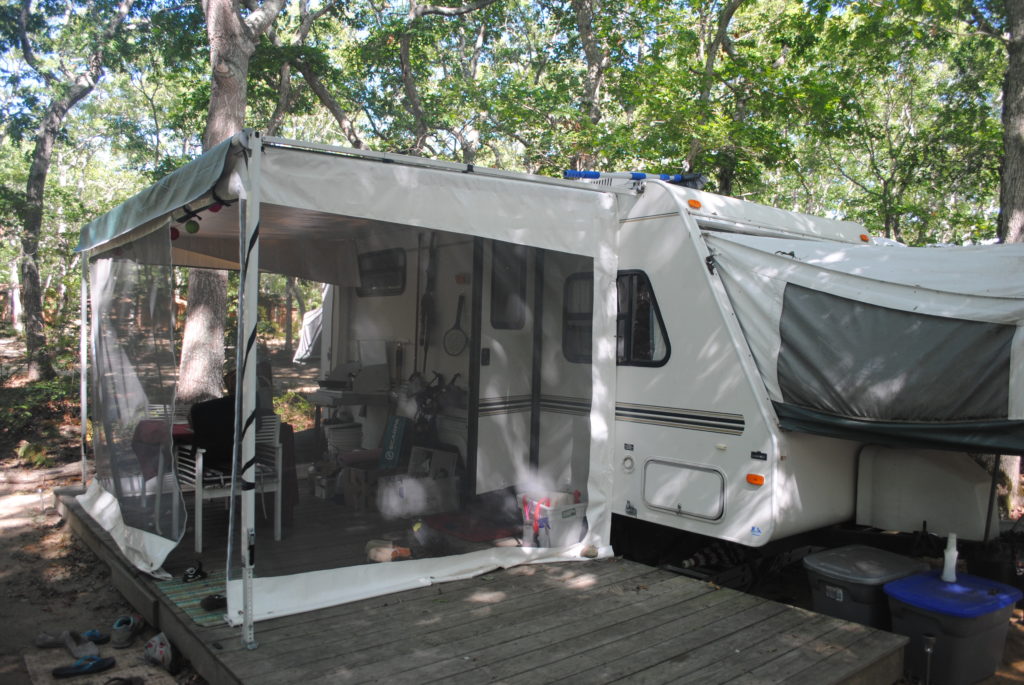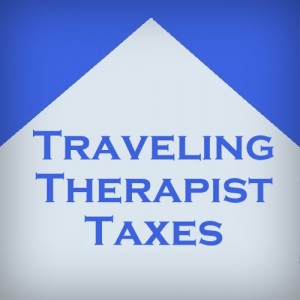Physical therapists find ways to live this crazy travel-life in a bunch of different ways and have to overcome a variety of obstacles to find the flexibility in their lives that can allow them to up-and-go to different jobs at any time. People travel with their friends, with their spouses, with their pets, and with their families. Any of these obstacles adds a little complication to travel, but by no means should these be reasons not to travel.
Traveling in an RV has always seemed to me to be the best way to overcome housing struggles. Having your own, mobile space solves many of the difficulties of shuttling kids around from state-to-state or finding a short-term apartment that will allow pets. In 2014, we lived in a camper on Martha’s Vineyard to solve the issue of not being able to find affordable housing. The camper was a major part of what made that one of my all-time favorite travel assignments. There are pieces of our lifestyle that summer that I wish I could make more consistent staples of my everyday life. If Kate and I ever did continue to travel with our daughter, it would be in a camper again – like the Partridge Family of Physical Therapy.

A couple resources:
- I have been enjoying reading PT Adventures and some of their recent posts on traveling with a baby – some on traveling with a dog too.
- Highway Hypodermics is a facebook page for healthcare travelers living in RVs. The page has over 5,000 members and is definitely the best resource if you have any questions about living the travel life in a camper.
Travel PT With a Significant Other
If I know anything, I know how to find two travel PT jobs at once, because Kate and I were travel PTs together for about 10 years. I can’t think of a time that we weren’t able to travel to where ever we wanted because we couldn’t find two jobs – though, we did have to be flexible and inventive at times.

Normally, our first line of attack would be to find two jobs close to one central town. This approach would typically work. We never put any effort towards trying to work in the same clinic, but often a recruiter would find us two jobs at the same workplace. The agency would present us as a “travel team” which is advantageous for a facility trying to fill multiple positions – one stop shopping for multiple therapists. This easy solution was sometimes nearby where we wanted to be and not necessarily exactly where we wanted to be (i.e. commuting to work in communities just outside a major city we wanted to live in). The most frequent settings we would find work together in was in smaller community hospitals (CAH) or working for a home care agency.
Even if you’re not romantically involved with another traveler, you might consider traveling with a friend. Two travelers working contracts together can be a great way to get ahead financially – getting two housing stipends and having only one rent is a great way to keep some more cashola in your pocket.
In the rare occasions that we couldn’t find two jobs in the same area, we would start calling around the area to private practices looking for independent contracts. One of us would have the “official” travel job with benefits, and the other would find an independent contract. Here’s a more detailed post on the process for finding an independent travel PT contract.
Living with a significant other who isn’t a Physical Therapist should not be the lone reason not to travel. I have met many couples along the way who have figured out how to make travel therapy work for them. One good friend (PT) met a Speech Therapist while traveling. They eventually got married, settled down, had kids, the whole nine yards. But, for a while, they took year-long travel assignments – her as an SLP in schools, him in a variety of settings as a PT. Additionally, I know several PT/OT couples who have had the same positive experiences we did – there’s a lot of facilities out there looking for PT/OT teams. I’ve also met many couples traveling as a PT with a non-healthcare worker (even one PT/recruiter couple!). If the non-therapist doesn’t have an easily portable job, he typically has to be more flexible in his work – odd jobs, seasonal work, Ridesharing driver, Amazon delivery, etc. With a little determination to get on the road, it’s easy to work odd-jobs for a few months at a time in many regions of the country.
Traveling when you have add-ons (family, pets, etc.) ultimately comes down to the final conclusion that so many things in travel therapy do – flexibility helps! The more flexible you can be with where you’re willing to travel, what setting you’re willing to work in, or what you’re willing to live in, the more opportunities you’ll have. A little flexibility goes a long way in finding happiness through traveling therapy.


 Traveling Therapist: My wife and I traveled for a while but then had accepted permanent jobs, we are considering the traveling therapist life again and this brought up some questions in our minds. We are currently renting in Kansas, but when we go to travel again, we are trying to figure out what we need to do as far as claiming a tax home. I was originally living in my parents’ retirement house in Florida and was paying rent to them. My concern is that I might not have a place to claim as my tax home when we go back to traveling. Have you bought a house? What is the best way for us to claim a tax home?
Traveling Therapist: My wife and I traveled for a while but then had accepted permanent jobs, we are considering the traveling therapist life again and this brought up some questions in our minds. We are currently renting in Kansas, but when we go to travel again, we are trying to figure out what we need to do as far as claiming a tax home. I was originally living in my parents’ retirement house in Florida and was paying rent to them. My concern is that I might not have a place to claim as my tax home when we go back to traveling. Have you bought a house? What is the best way for us to claim a tax home?